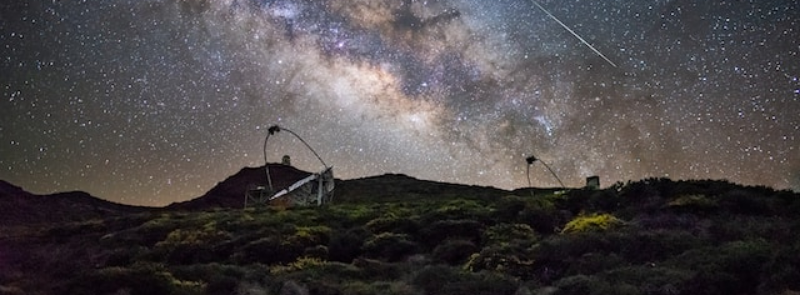
When It Occurs
Annually in Mid-May on or just before First Quarter Moon
Timeline
Days Passed (645)
# Hashtags
#AstronomyDay #PromoteAstronomy
Astronomy Day is a yearly celebration observed globally, designed to facilitate interaction between the general public and astronomy enthusiasts, groups, and professionals.
History and Background
- Establishment: Astronomy Day was founded in 1973 by Doug Berger, then president of the Astronomical Association of Northern California. His idea was to bring astronomy to the public by setting up telescopes in urban locations where people could easily observe the sky.
- Expansion: The event has since grown into a global celebration with activities hosted by various astronomy clubs, observatories, planetariums, museums, and schools.
Objectives
The primary objectives of Astronomy Day are:
- Promote Interest in Astronomy: Inspire curiosity and enthusiasm for astronomy among people of all ages.
- Educate the Public: Provide educational opportunities about astronomy and related sciences.
- Facilitate Public Engagement: Encourage people to engage with the night sky through hands-on activities and observations.
- Support Amateur Astronomy: Foster a supportive community for amateur astronomers and provide resources for those interested in learning more.
Importance of Astronomy
Astronomy plays a significant role in science and society:
- Understanding the Universe: Astronomy helps us understand the origins, structure, and evolution of the universe.
- Technological Advances: Innovations in astronomy have led to advancements in technology, including improvements in imaging, data analysis, and telecommunications.
- Cultural Impact: Astronomy has a profound cultural and philosophical impact, influencing our perception of our place in the universe.
- Educational Value: Astronomy promotes scientific literacy and critical thinking skills.
Celebrations and Activities
Astronomy Day is marked by a wide range of activities and events organized by astronomy clubs, observatories, planetariums, and educational institutions. These activities often include:
- Public Observing Sessions: Setting up telescopes in public places for people to view celestial objects such as the Moon, planets, stars, and galaxies.
- Planetarium Shows: Special presentations in planetariums to educate visitors about the night sky and celestial events.
- Lectures and Workshops: Educational talks and hands-on workshops covering various astronomy topics.
- Star Parties: Community gatherings where amateur astronomers share their telescopes and knowledge with the public.
- Exhibitions and Displays: Showcasing astronomy-related exhibits, including meteorites, models of the solar system, and space missions.
- Educational Outreach: Activities designed to engage children and students, such as astronomy-themed crafts, games, and storytelling.
How to Participate
- Attend Local Events: Check with local astronomy clubs, observatories, and planetariums for events in your area and participate in public observing sessions, lectures, and other activities.
- Engage with Online Resources: If you cannot attend in person, participate in online events, virtual tours, and live-streamed observations.
- Join an Astronomy Club: Consider joining a local astronomy club to connect with fellow enthusiasts and access resources and support.
- Share Your Experience: Use social media to share your Astronomy Day experiences and promote interest in astronomy using hashtags like #AstronomyDay and #StarGazing.
- Explore the Night Sky: Spend some time observing the night sky with a telescope, binoculars, or simply your eyes. Learn about the constellations and celestial events visible in your area.
- Educate Others: Share your knowledge of astronomy with friends, family, and community members, encouraging them to explore the wonders of the universe.
Significance of Astronomy Day
Astronomy Day plays a crucial role in promoting public interest in astronomy and the sciences. It provides an accessible platform for people of all ages to learn about the universe and fosters a sense of wonder and curiosity. By engaging the public in astronomy-related activities, Astronomy Day helps to build a community of science enthusiasts and supports the broader goal of scientific literacy and education.
The observance of Astronomy Day encourages a deeper appreciation for the night sky and the scientific study of celestial objects, inspiring future generations to pursue careers in science, technology, engineering, and mathematics (STEM) fields.


